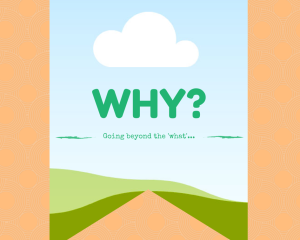There comes a time in every PhD candidate’s life when they must question the assumptions of their research.
Gone are the days when just arriving at uni by 9 am in the morning and reading a bunch of articles, pulling out concise nuggets of information to feed into a wider KFC mixed bucket of academic knowledge, is sufficient.
The ‘what’ in the research question
Every PhD student is familiar with the age-old question: ‘what are you studying?’. This is an opportunity to turn what is a complex, theoretical masterpiece, evolving over 3+ years, into a simple phrase. My phrase is ‘I’m looking at community and industry perspectives of domestic solar policy’. Responses to this phrase vary widely, with the most typical being a questioning look and a sip of a drink. The next most likely response is ‘what’s solar?’, which surprises me because what with all the ads on TV I assume everyone would know about solar electricity generation by now. Indeed, when I gesticulate wildly with my hands and indicate that I’m studying rooftop solar systems people nod their heads with increasing comprehension. I’ve had a variety of other responses, including ‘well, it all depends how you define community’; which is true. Or ‘I didn’t know we had a policy about suns. How does a household manage to get its own sun?’; thanks for pointing out the lack of clarity in my statement. And ‘would you like to hear my thoughts on solar panel?’; yes, yes I would. (This is then followed by a series of statements about the government needing to support renewable energy – in any of its various guises).
The ‘why’ in the research question
Curiously, though, very few people (only two or three) have ever asked me ‘why?’. Isn’t that really the question that’s the most important? Really, when it comes to any PhD student, the WHY contributes to the most important part of any research. Any member of the public shouldn’t need to understand the epistemological undercurrents of your research, sophisticated statistical analytical techniques, geographical boundaries or geological timescale, the exact definition of ‘community’ being used, or even the key terms of research undertaken. But what every researcher should be able to explain to any member of the public is ‘why’. Who or what will benefit from the research? What is your miniscule contribution adding to the literature, and more broadly the world? Who is driving the research and why was it initiated?
Questioning our research
A cloud will often pass over my fourteen-person PhD office, when someone will exclaim ‘argggggh! Oisdof ijoi vjaoeir jvoaiwje io!!! WHAT AM I DOING HERE?’. A whole additional set of questions are added to those above, and relate much more to the personal than to the research content. Why am I spending AT LEAST three years of my life researching something no one cares about? Why am I forcing myself to live a subsistence lifestyle, where my scholarship income (if I’m lucky enough to have one) is only 25% more than what I would get on the dole? What am I supposed to do at the end of it? Not to mention, why am I putting up with all these students absorbing so much of my precious time?
Being side-tracked
So much of our thinking during our research is occupied with questions around other areas of importance with regard to our research. How will I make it look like I’ve done enough work to justify my scholarship in the next milestone submission? How will I fund this research? What went wrong with my ethics approval? Where has that sodding book gone? So much of our time is then spent on issues completely relevant to our research, and yet not relevant to our Research. When will we stop with the researching and Start Researching?
We are now exposed to endless ‘communicating my research’ presentations and seminars, all of which encourage us to get a ResearcherID, and OrcID, a LinkedIn page, a Blog, join Twitter, write chapters and articles, present at conferences and symposia. And yet, none of them really seek to get to the crux of the issue… we must know how to communicate the relevance of our research. Not our outcomes, not our sample size, or the number of citations we have. Or the number of sponsors of research, or the number of media releases. We must make our research relevant to the public and to the academic community, and we must do this at the beginning, at the end, and all the way through.
Getting back on track…
Unfortunately we cannot do this while we still don’t know WHY we are studying. I have attended postgraduate seminars where those presenting were asked to explain why they had chosen a particular subject. I have heard someone say ‘because my supervisor told me to’, and, sadly, without a hint of irony. I’m lucky enough to have chosen my research topic myself, and therefore the question of ‘why?’ is all the more important. I must continually try to justify my research existence, to my supervisors, my peers, to my friends and family, and, most importantly, to myself. And yet I am failing at this. Eight months into my research program and I still can’t quite justify what my research is about.
My question to you is, what are you working on and WHY?

Well what a relief to know I am not alone with all these same thoughts!!
🙂
It’s nice to know that someone else is feeling the same way! I would love to hear more about your research, Laura. Why don’t you send me a link?